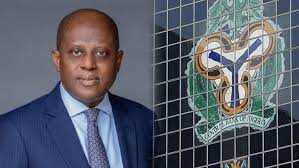 A deal of €512 (N112b) between the European Union (EU) and Nigeria to revive the declining economy and the social sectors in the north, improve power supply and deepen democracy nationwide has been sealed during the weekend in Nairobi, Kenya.
A deal of €512 (N112b) between the European Union (EU) and Nigeria to revive the declining economy and the social sectors in the north, improve power supply and deepen democracy nationwide has been sealed during the weekend in Nairobi, Kenya.
The deal was sealed during the 11th European Development Fund (EDF) National Indicative Programmes (NIP) at the sidelines of the just ended 99th session of the African, Caribbean and Pacific Council (ACP) of ministers and 39th session of the African, Caribbean and Pacific Council-European Union (ACP-EU) Council of Ministers meetings.
Supervising Minister of National Planning, Ambassador Bashir Yuguda, and head of Nigeria’s delegation to the ACP/EU meeting signed on behalf of Nigeria while EU commissioner for development Cooperation, Ambassador Andres Piebalgs signed for the bloc.
The support spread over seven years beginning from this year, covers three key development areas including health and resilience in Northern Nigeria, as well as governance and power supply.
Signing the deal, the EU envoy, noted that the grant would support programmes in agriculture and rural development in the
North as well as electricity and good governance in Nigeria.
Piebalgs informed that the Union’s development support to Nigeria stood at about €100 million in 2013 alone, adding that there was a possibility of increasing the grant in future.
“This is because if it is well used it makes a great difference both to Nigeria and to us in Europe. More prosperity among nations definitely leads to more trade and less problems and leads to world peace. So indirectly Europe also benefits,” he said.
Similarly, Ambassador Yuguda explained that the 11th EDF programmes and projects were directed at addressing some of the challenges that Nigeria was facing at this stage of consolidating its status as a middle income country and help the nation achieve its expressed developmental goals.
“Privatisation of key sectors of the economy such as telecommunications and electricity generation and distribution has been given top priority in an attempt to diversifying the economy away from dependence on oil and to stimulate investment especially in agriculture and food production,” he said.



